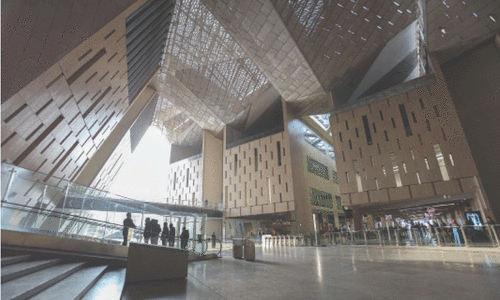CAIRO: Ranked one of the most polluted cities in the world, Cairo is once again under the shadow of a highly toxic black cloud which mysteriously settles above the huge city every autumn.
Exhaust fumes belched by millions of cars mixed with the hypertoxic emissions of the annual burning of rice stubble in rural areas of the Nile delta are a prime cause, along with the city’s ever-expanding population.
“We have here 540 micrograms per cubic metre of PM10 (polluting particles), which is three times higher than the official limit, and 10 times the limit of the World Health Organisation,” meteorologist Magdi Abdel Wahab told AFP.
The thick “lead blanket” settles every year over this Nile city, triggering serious health concerns for its 16 million residents. Emissions of nitrogen dioxide and carbon monoxide gases, mainly from the city’s traffic, are mixed with the PM10 particles to create a potentially lethal cocktail, experts say.
The WHO has recommended lowering levels of the particles, which can cause a range of problems from bronchitis to foetal deformities, to 20 micrograms per cubic metre per year.
The black cloud started appearing in Cairo skies in 1999 to the dismay of the city’s residents who already struggle to deal with surging pollution on a par with Beijing and Mexico City.
Since then, it returns faithfully every September and lasts until early winter, intensifying air pollution which kills up to 5,000 people every year, according to medical sources.
The authorities lay much of the blame with farmers in the Nile delta who traditionally burn rice stubble to enrich the land for the next harvest. On top of factory and traffic pollution, the burden is too much for Cairo’s environment.
A Franco-Italian team of researchers says that pollution in Egypt’s capital is three times greater than in Beijing, another city where the environment is struggling to keep pace with breakneck economic development.
Secretary of State for the Environment Maged George Elias says rather optimistically that the black cloud will disappear by 2010.—AFP













































